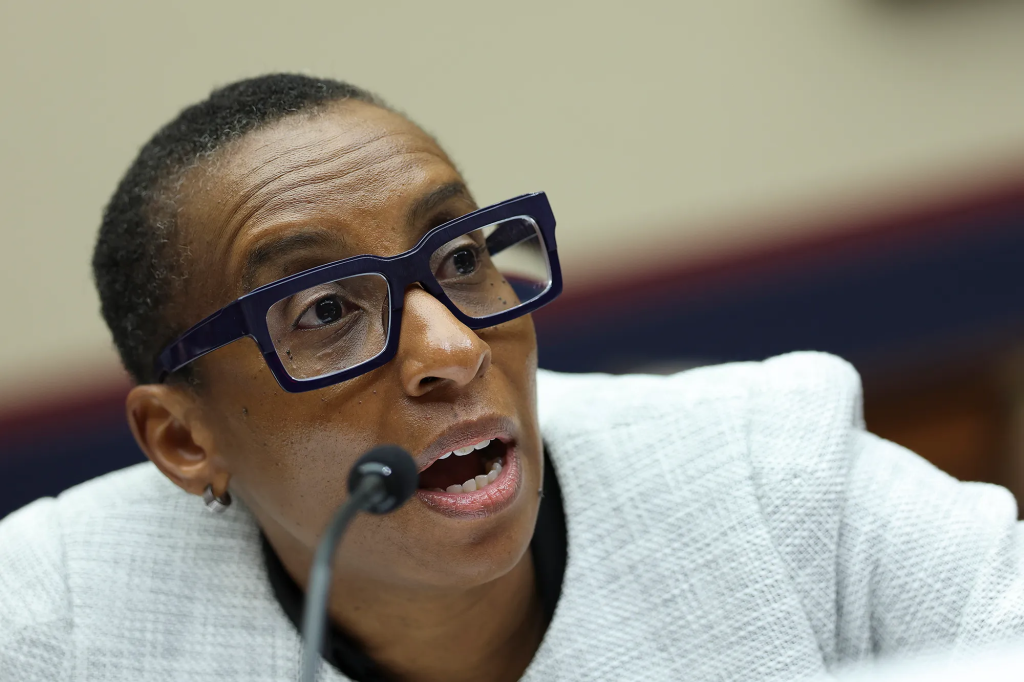Controversy Erupts as Al Sharpton Criticized for Labeling Harvard President’s Resignation an Attack on ‘Every Black Woman’

Introduction
Tensions rise and controversy ensues as civil rights activist Al Sharpton faces criticism for his recent comments, characterizing the resignation of Harvard’s president as an attack on “every Black woman.” The unfolding discourse raises questions about the appropriateness of such statements and their potential impact on the broader conversation surrounding racial and gender issues. In this article, we delve into the controversy, examining the context of Sharpton’s remarks and the ensuing reactions.
The Backdrop: Harvard President’s Resignation
Harvard President’s Decision

Harvard University recently witnessed the resignation of its president, a move that sparked conversations within and outside the academic community. The reasons behind the resignation, coupled with the subsequent commentary, have fueled a broader discussion on race, gender, and leadership.
Al Sharpton’s Remarks
Civil rights leader Al Sharpton entered the fray with a statement characterizing the Harvard president’s resignation as an attack on “every Black woman.” The sweeping assertion immediately drew attention and ignited a range of responses from various quarters.
Criticism Directed at Al Sharpton
Appropriateness of Language

Critics argue that Sharpton’s choice of language is overly broad and may not accurately reflect the nuanced circumstances surrounding the Harvard president’s resignation. The assertion that the situation impacts “every Black woman” is deemed by some as an oversimplification.
Individual Accountability vs. Systemic Issues
The controversy highlights a broader debate about the balance between holding individuals accountable for their actions and addressing systemic issues. While acknowledging the importance of addressing disparities, critics contend that framing a resignation as an attack on an entire demographic may oversimplify complex organizational dynamics.
Public Figures’ Responsibility

As a prominent public figure and civil rights activist, Al Sharpton’s remarks are under scrutiny for their potential to shape public opinion. Critics argue that such sweeping statements may contribute to a polarized discourse rather than fostering a nuanced understanding of the challenges faced by Black women in leadership positions.
Reactions and Calls for Accountability
Social Media Backlash

Social media platforms have become a battleground for differing opinions, with both support and criticism directed at Al Sharpton. The incident has spurred conversations about responsible discourse, especially concerning issues as sensitive as race and gender.
Calls for Clarification
In the wake of the controversy, some voices call for Al Sharpton to provide clarification on the specific elements of the Harvard president’s resignation that he perceives as an attack on Black women. This request underscores the importance of precision in public statements, especially from influential figures.
Addressing Systemic Challenges
Amidst the critiques, there are calls for a broader discussion on systemic challenges faced by underrepresented groups in leadership roles. The incident prompts reflection on the need for nuanced conversations that address both individual situations and overarching structural issues.
Conclusion
The controversy surrounding Al Sharpton’s remarks on the Harvard president’s resignation underscores the complexities inherent in discussions about race, gender, and leadership. As the conversation evolves, the incident prompts reflection on the responsibility of public figures in framing discourse and the importance of fostering nuanced understandings of the challenges faced by marginalized communities. In the ongoing dialogue, the focus remains on promoting constructive conversations that contribute to meaningful change.
